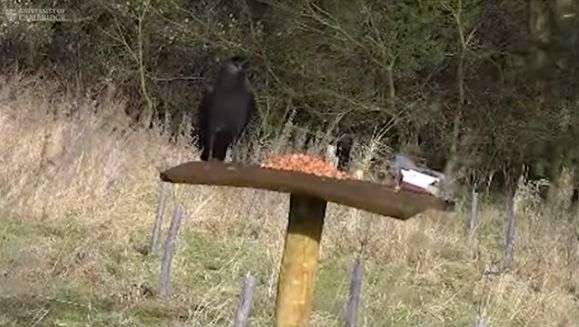What birds' attitudes to litter tell us about their ability to adapt

Urban birds are less afraid of litter than their country cousins, according to a new study, which suggests they may learn that litter in cities is not dangerous. The research could help birds to adapt to urban settings better, helping them to survive increasing human encroachment on their habitats.
The study led by Gates Cambridge Scholar Alison Greggor and published in the journal Animal Behaviour, shows that corvids—the family of birds which includes crows, ravens and magpies—are more likely to show fear in relation to unfamiliar objects than other birds. However, if they and other bird species have previously encountered similar objects they are able to overcome some of their fear.
The researchers measured levels of fear of new objects in birds across urban and rural habitats, comparing corvids, a family known for being behaviourally flexible and innovative, with other bird species found in urban areas. The birds' hesitancy to approach food when different types of objects were nearby was compared to their behaviour when food was presented alone.
The researchers found corvids were more afraid of objects than other birds. However, birds were less fearful if the objects involved were similar to something they may have encountered before, for instance, urban birds were less hesitant in approaching litter.
Alison Greggor, who is doing a PhD in Psychology at the University of Cambridge, said: "From a broad perspective this work aims to help us understand how animals adapt to human-dominated landscapes. We found that although species differ in their overall levels of fear towards new things, populations of all species in urban areas showed lesser fear towards objects that looked like rubbish, but did not show reductions in fear towards all types of novelty. Therefore, they may actually be learning which specific parts of urban habitats are safe and which are dangerous. In future, others might be able to use this information to predict what types of things animals need to learn to be able to survive in urban areas. Such predictions may help us understand why some species are unable to adjust to urban areas."
More information: Alison L. Greggor et al. Street smart: faster approach towards litter in urban areas by highly neophobic corvids and less fearful birds, Animal Behaviour (2016). DOI: 10.1016/j.anbehav.2016.03.029
Journal information: Animal Behaviour
Provided by University of Cambridge




















